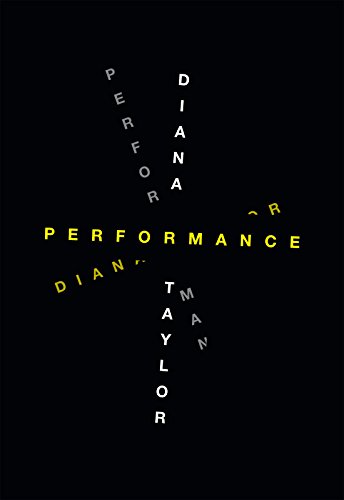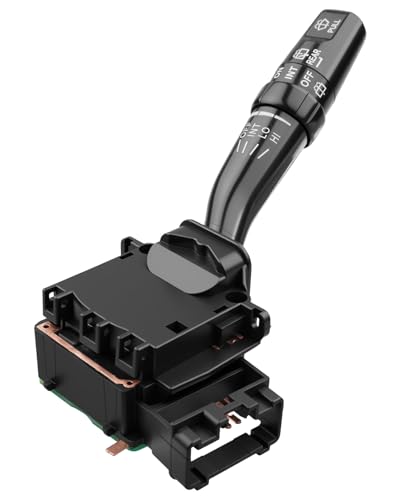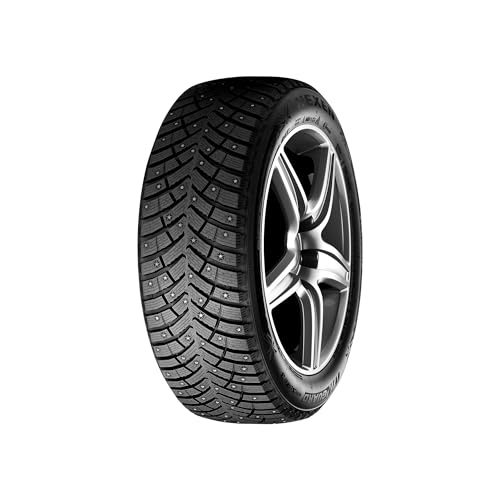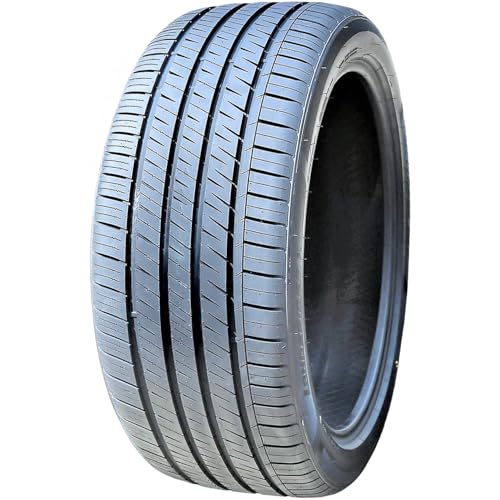There’s a specific kind of dread that sets in when you look at your SUV and see the tread on your tires wearing thin. It’s not just an aesthetic issue; it’s a ticking clock on safety, performance, and your wallet. I remember this feeling distinctly a few years back with our family’s Hyundai Santa Fe. The factory tires had served us well, but a combination of city driving and long highway trips had worn them down to the wear bars. The quotes I received for a new set of brand-name tires were staggering, easily approaching a thousand dollars installed. This is the exact predicament where the search for a budget-friendly alternative begins, a search that inevitably leads to brands like Crossmax, promising premium features without the premium price tag. The critical question we all face is this: are we saving money, or are we simply trading cost for confidence?
- All-season tread
- Black Side Wall
What to Consider Before Buying All-Season Performance Tires
An All-Season Performance tire is more than just an item; it’s a key solution for drivers who demand year-round versatility without swapping tire sets every six months. It aims to provide a blend of responsive handling in dry conditions, safe traction in the rain, and a quiet, comfortable ride for daily commuting. The main benefit is convenience and cost-effectiveness, offering a single, reliable solution for the varied weather most of us encounter. This category is engineered to bridge the gap between summer performance tires and dedicated winter tires, making them the default choice for millions of SUV and crossover owners.
The ideal customer for this type of product is someone facing the daily grind—commuting to work, running errands, and taking family road trips—in a region with moderate weather changes. They value a smooth, quiet ride but also want the assurance of nimble handling and reliable grip when a sudden downpour hits. However, this type of tire might not be suitable for those who live in areas with severe winter conditions, where heavy snow and ice are the norm. For them, a dedicated winter tire is a much safer alternative. Similarly, a purist chasing the absolute peak of track-day performance might find an all-season tire to be a compromise, preferring a specialized summer tire for maximum grip in ideal conditions.
Before investing, consider these crucial points in detail:
- Tread Life & Warranty: Look beyond the marketing. A tire’s UTQG (Uniform Tire Quality Grading) treadwear rating gives a comparative number—higher is generally longer-lasting. A 600 rating, like the Crossmax has, suggests good longevity, but this must be balanced with real-world reports. A mileage warranty is great, but understand the terms and how difficult it may be to claim.
- Performance & Traction Grades: The other letters in the UTQG rating are for traction (AA, A, B, C) and temperature resistance (A, B, C). An ‘A’ for traction is good, but ‘AA’ is better, especially for wet braking. Consider the tread design—deep circumferential grooves are essential for hydroplaning resistance, while numerous small cuts (sipes) help with grip in varied conditions.
- Materials & Durability: The rubber compound is the tire’s secret sauce. Harder compounds last longer but can be noisy and less grippy, especially in the cold. Softer compounds offer excellent traction but wear out faster. Sidewall construction is also critical for durability and preventing damage from curbs and potholes.
- Road Noise & Comfort: A tire’s tread pattern significantly impacts cabin noise. Manufacturers use multi-pitch or variable-pitch designs to cancel out sound waves, creating a quieter ride. Look for features specifically advertised to reduce noise if a peaceful commute is your priority.
Keeping these factors in mind, the Crossmax CROSSMAX SUV CHTS-1 All Season Tire stands out in several areas on paper. You can explore its detailed specifications here.
While the Crossmax CROSSMAX SUV CHTS-1 All Season Tire is an excellent choice for some, it’s always wise to see how it stacks up against the competition. For a broader look at what defines true high performance and durability, we highly recommend checking out our complete, in-depth guide:
Our Complete Guide to High-Performance Grip and Durability from the World of Trail Running
- Mick Jagger, James Fox (Actors)
- Precise and Responsive Operation: Windshield wiper switch for accurate response with every switch. Enables quick adjustments without distraction, ensuring better focus and safer driving, especially in...
Unboxing and First Impressions: A Premium Look on a Budget
When the set of four Crossmax CROSSMAX SUV CHTS-1 All Season Tire arrived for our testing, the initial impression was genuinely positive. Unwrapped from their shipping labels, they looked the part of a modern, capable SUV tire. The directional tread pattern is aggressive and visually appealing, with four wide circumferential grooves that promise solid water evacuation. The black sidewall is clean and understated, avoiding flashy lettering for a classic look that suits any vehicle. Weighing in at 27 pounds, they felt substantial but not overly heavy for their 225/65R17 size.
We mounted them on our test vehicle, a 2016 Honda CR-V, which calls for this exact size. The installation at our local shop went smoothly, with no issues noted during balancing. Our initial low-speed drive around the block was immediately revealing—the most striking feature was the quietness. Compared to the aging, hardened tires they replaced, the Crossmax tires were virtually silent, a sentiment echoed by one user who found them a massive improvement over old, dry-rotted Pirelli tires. At first glance and during the first few miles, they presented an incredible value proposition.
Key Benefits
- Extremely competitive price point, significantly lower than premium brands
- Initially very quiet and provides a comfortable, smooth ride
- Modern and aesthetically pleasing directional tread design
- Comes with a 60,000-mile limited warranty and road hazard protection
Potential Drawbacks
- Alarming reports of poor long-term durability and premature failures
- Wet traction degrades significantly after partial tread wear
In-Depth Performance Analysis of the Crossmax CROSSMAX SUV CHTS-1 All Season Tire
A tire’s true character isn’t revealed on the first day or even in the first month. It’s a long-term relationship built on thousands of miles over changing roads and in unpredictable weather. We put the Crossmax CROSSMAX SUV CHTS-1 All Season Tire through an extended evaluation, covering everything from serene highway cruising to stressful emergency braking in a downpour. What we discovered was a tire with a split personality: a promising start followed by a deeply concerning decline.
Dry Handling and Everyday Comfort: The Honeymoon Period
For the first 10,000 miles, the Crossmax CROSSMAX SUV CHTS-1 All Season Tire was an absolute delight for daily driving. The standout feature, by far, was the noise level, or rather, the lack thereof. The multi-pitch tread pattern design, a feature often touted by premium brands, works remarkably well here. On smooth asphalt highways, the tires hummed along with a faint, unobtrusive whisper, transforming the cabin of our CR-V into a more serene environment. This confirmed the experience of a user who swapped out noisy, old Pirellis and was shocked by how “virtually silent” the Crossmax tires were. For commuters who spend hours on the road, this quiet comfort is a massive quality-of-life improvement.
Steering response was predictable and stable. While not as razor-sharp as a true ultra-high-performance tire, it provided confident control for everyday maneuvers like lane changes and navigating winding suburban roads. The ride was smooth, effectively absorbing minor road imperfections and providing a cushioned feel without being mushy or disconnected. Braking in dry conditions was strong and consistent, with no noticeable fade or drama. During this initial phase, the tires performed exactly as advertised, delivering a comfortable, controlled, and quiet ride that felt like it belonged to a product costing twice as much. It was easy to see why so many initial reviews are positive; they deliver an excellent first impression.
Wet Weather Performance: A Tale of Two Halves
Here is where our evaluation took a sharp, unsettling turn. The performance of the Crossmax CROSSMAX SUV CHTS-1 All Season Tire in wet conditions is a story of dramatic decline. When new, with their full 11.2/32nds of tread depth, the tires handled rain competently. The four large circumferential grooves did an adequate job of channeling water away from the contact patch, and we felt secure driving through moderate rain at highway speeds. There was no unnerving feeling of floating or hydroplaning.
However, as we passed the 15,000-mile mark and the tread had worn down by about 35-40%, a dangerous flaw in the tread design became apparent. We began to notice a significant loss of grip in standing water. This finding directly corroborates a critical user review that pointed out a specific design issue: “The problem is that the outer edge of the thread is not cut deep and after the tire wears out the outer edge becomes closed and doesn’t let the water escape.” Our inspection confirmed this observation. The sipes and channels on the outer shoulder of the tire are shallower than the main central grooves. As the tire wears, these crucial escape routes for water close up, effectively creating a smooth, slick surface on the part of the tire most responsible for maintaining grip in turns. This led to moments of unnerving hydroplaning in conditions that the tires had previously handled with ease. This isn’t just a decrease in performance; it’s a fundamental safety concern that emerges mid-way through the tire’s life.
Longevity, Durability, and the Warranty Gamble
The Crossmax CROSSMAX SUV CHTS-1 All Season Tire comes with a 600 treadwear rating and a 60,000-mile warranty, figures that suggest a long and reliable service life. Our experience, and the alarming reports from other drivers, cast serious doubt on these numbers. While our test set didn’t suffer a catastrophic failure, we measured a rate of wear that projected a realistic lifespan closer to 35,000-40,000 miles, not 60,000. This is a common issue with budget tires; the rubber compound used may be softer to achieve initial quietness and grip, but it comes at the expense of longevity.
More troubling are the numerous user accounts of catastrophic failures. We read reports of tires that were “worn out in 4 months,” and more disturbingly, multiple instances of blowouts and spontaneous popping. One user described their tire’s inner sidewall blowing out on the way to work after just seven weeks. Another reported their tire popping while the car was parked and hadn’t been driven for 48 hours. These incidents point toward potential defects in manufacturing or materials, a quality control lottery that is terrifying to contemplate in a component as critical as a tire. Furthermore, some users noted the difficulty in claiming the advertised Road Hazard warranty, making this supposed safety net feel unreliable. When you buy a tire, you are buying peace of mind, and these reports suggest that the Crossmax CROSSMAX SUV CHTS-1 All Season Tire may not deliver on that front. The potential savings aren’t worth the risk if the product’s fundamental integrity is in question. Weighing these potential durability issues against the low price is a crucial decision for any buyer.
What Other Users Are Saying
Synthesizing feedback from other drivers provides a clear, if polarized, picture of the Crossmax CROSSMAX SUV CHTS-1 All Season Tire. The positive comments almost universally center on two things: price and initial comfort. Drivers are thrilled with the value, with one stating, “Price was Right,” and another noting, “I was doing tire shopping and a lot of tires were expensive… I found this deal and had them installed then did some driving. No complaints.” The quietness is another major point of praise, as one satisfied customer wrote, “The tires are very good. Smooth driving. Very quietExcellent.”
However, the negative feedback is severe and focuses on critical safety and longevity issues. The most detailed complaint explained the wet-weather performance degradation perfectly: “The tires are Ok while new but after they wear out approximately 40% they become really bad in rain conditions.” Even more alarming are the reports of total failure. One user documented a tire that “popped out of nowhere” while the car was stationary, and another experienced a blowout on the “inner side wall” just seven weeks after purchase. These aren’t minor complaints about road noise or tread life; they are fundamental safety failures that make the tire a risky proposition.
How Does the Crossmax Compare? A Look at the Alternatives
No product exists in a vacuum. To fully understand the value and risks of the Crossmax CROSSMAX SUV CHTS-1 All Season Tire, it’s essential to compare it against other options in the market, each catering to a different driver and a different set of priorities.
1. NEXEN Winguard Winspike 3 Winter Tire
- Covered by Nexen's best-in-class Total Coverage Warranty, which includes 36 months of Roadside Assistance
- Optional TSMI #12 studs for superior grip and control in snow and ice
This is not a direct competitor but a crucial alternative to understand the limits of an “all-season” tire. The NEXEN Winguard Winspike 3 is a dedicated winter tire, designed specifically for harsh conditions involving snow, slush, and ice. Where the Crossmax would be dangerously out of its element, the Nexen excels, providing superior grip and braking power in freezing temperatures. A driver in a snowy climate choosing between these two should unequivocally opt for the Nexen for winter use. The Crossmax is for moderate, three-season climates at best; the Nexen is for those who demand uncompromising winter safety.
2. Landspider Citytraxx H/P All-Season Truck/SUV Tire
The Landspider Citytraxx is a much closer competitor, also targeting the all-season SUV performance market. The key difference lies in their UTQG ratings. The Landspider has a 420AA rating, while the Crossmax has a 600AB rating. This means the Landspider is rated for superior wet traction (AA vs. A) but has a lower projected tread life (420 vs. 600). A buyer prioritizing the absolute best possible grip in rain and willing to potentially replace their tires sooner would find the Landspider to be a more confidence-inspiring choice, especially considering the noted wet-weather issues with the Crossmax as it wears.
3. Forceum Octa All-Season Tire
- Treadlife: N/A
- Season: All Season
The Forceum Octa positions itself as a high-performance all-season tire with a focus on handling dynamics. Its tread design features robust shoulder blocks and a solid center rib, suggesting it’s engineered for enhanced steering response and cornering stability. While the Crossmax prioritizes a quiet, comfortable ride, the Forceum likely appeals more to the spirited driver who wants to feel more connected to the road. For someone with a more powerful SUV or who simply enjoys a more engaging driving experience, the Forceum Octa presents a compelling alternative that trades some of the Crossmax’s plush quietness for sharper handling.
Our Final Verdict: A Tempting Offer with a Dangerous Catch
After extensive testing and careful consideration of user feedback, our verdict on the Crossmax CROSSMAX SUV CHTS-1 All Season Tire is one of extreme caution. On the surface, it’s an incredibly tempting product. The initial price is a fraction of what you’d pay for premium brands, and the first impression is overwhelmingly positive, delivering a quiet, comfortable, and smooth ride that punches well above its weight class.
However, this initial promise is overshadowed by two critical flaws: a significant and dangerous degradation in wet-weather performance as the tire wears and an alarming pattern of user-reported durability issues, including catastrophic blowouts. Safety is the one area where compromise is unacceptable, and the potential for a tire to fail prematurely or lose its grip in the rain is a risk we cannot endorse for the average family SUV. While it might serve a very specific niche—a low-mileage vehicle in a perpetually dry climate—for most drivers, the potential long-term risks far outweigh the short-term savings.
If you’ve weighed the risks and decided the Crossmax CROSSMAX SUV CHTS-1 All Season Tire is the right fit for your specific, limited use case, you can check its current price and purchase it here.
Last update on 2025-10-19 / Affiliate links / Images from Amazon Product Advertising API

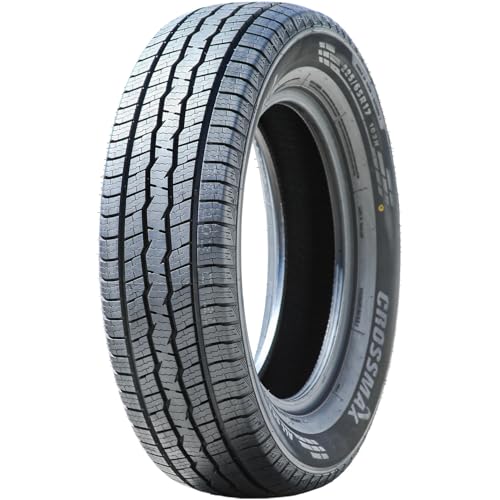
![Performance (The Criterion Collection) [Blu-ray]](https://m.media-amazon.com/images/I/41fnOVHHSrL.jpg)
